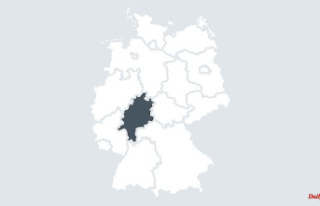Russia withdraws its consent to the grain deal. The United Nations, Turkey and Ukraine nevertheless agree that twelve ships should set off through the humanitarian corridor from Ukraine towards Istanbul. 700,000 tons of grain are waiting to be exported.
Despite Russia's suspension of the agreement on grain exports from Ukraine, ships are expected to continue sailing through the Black Sea corridor on Monday. The delegations of the United Nations, Turkey and Ukraine have agreed on a plan, according to a statement from the coordination center in Istanbul at night. On Monday, twelve ships are to set off through the defined humanitarian corridor in the direction of Istanbul, four in the opposite direction. The Russian delegation had been informed about this.
Six loaded ships set off towards the corridor on Sunday. In the corridor itself, however, there were no ship movements on Sunday. Currently, 21 freighters involved in the initiative and loaded with about 700,000 tons of grain are in or near the three Ukrainian ports, it said. Among them is a ship loaded with 30,000 tons of wheat for emergency aid in the Horn of Africa as part of the World Food Program.
Inspections of ships leaving the Bosphorus continued, with inspections of 11 loaded ships completed on Sunday, the release said. A total of 112 ships are currently registered for inspection in Istanbul, 97 of which are loaded. On Saturday, Russia suspended its consent to the exports agreed in the grain agreement "indefinitely". These were agreed in July, mediated by Turkey and the UN, and ended the month-long blockade of Ukrainian grain exports as a result of the Russian war of aggression.
According to Turkish information, 9.3 million tons of grain have been shipped since then. It had been agreed that the ships and their cargo would be checked as they passed through the Turkish Bosphorus Straits. The agreement was originally due to expire on November 19 - but would have been automatically extended if neither side had objected. Moscow has recently repeatedly criticized the agreement because it sees its own grain and fertilizer exports slowed down as a result of the sanctions imposed by the West.












